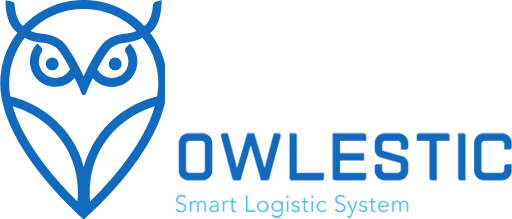Optimizing Perishable Food Distribution with Owlestic Fleet Management Software and Its Impact on Reducing Waste
20 Nov 2024The distribution of perishable food products, such as dairy, fruits, vegetables, and meat, presents significant challenges for fleet managers. Ensuring that these products reach their destination in optimal condition requires precise timing, temperature control, and real-time monitoring of the fleet. Even a minor delay or improper handling can result in significant waste, leading to financial losses and environmental impact.
Owlestic Fleet Management Software offers a solution to these challenges by providing real-time tracking, predictive maintenance, and advanced route optimization capabilities, helping businesses maintain product quality, reduce waste, and improve overall operational efficiency.
How Owlestic Fleet Management Optimizes Perishable Food Distribution
One of the primary benefits of Owlestic Fleet Management Software is its ability to integrate data from multiple sources, including temperature sensors, GPS, and telematics. This enables fleet managers to monitor not only the location and performance of their vehicles but also the conditions that are crucial for perishable goods, such as temperature and humidity levels.
For example, when transporting refrigerated goods, the software can track the temperature inside the vehicle in real-time and send alerts if the temperature deviates from the required range. This allows fleet managers to take immediate corrective actions, such as rerouting vehicles to the nearest service center or adjusting the refrigeration system to prevent spoilage.
Additionally, the software can optimize routes to minimize delays, avoid traffic congestion, and ensure the fastest delivery times. By calculating the most efficient routes based on real-time data, it helps reduce the time spent in transit, ensuring that perishable goods arrive fresh and in perfect condition.
Case Study: Reducing Food Waste with Real-Time Fleet Management
A leading food distribution company that specialized in delivering fresh produce to grocery stores and restaurants in a major metropolitan area struggled with high levels of food waste due to delays and inefficient routes. The company’s fleet frequently encountered traffic jams, unexpected detours, and poorly planned delivery schedules, which resulted in late arrivals and spoiled goods.
By adopting Owlestic Fleet Management Software, the company was able to monitor the condition of each vehicle and adjust routes based on real-time traffic data. The software also provided alerts when the temperature in a delivery vehicle went outside the safe range, allowing fleet managers to take immediate corrective actions.
As a result, the company saw a 30% reduction in food waste over the course of six months. By optimizing routes and maintaining proper temperature control, the fleet was able to deliver products more efficiently, preserving product quality and minimizing losses.
To learn more about optimizing your fleet management, check out this article that explore The Impact of IoT on Fleet Safety and Driver Behavior Monitoring. You can also visit the features page of Owlestic to see how our software can meet your needs effectively.
The Environmental and Financial Benefits of Reducing Waste
Reducing food waste has both financial and environmental benefits. From a financial perspective, eliminating waste helps businesses reduce the costs associated with discarded products, spoilage, and emergency deliveries. By improving the efficiency of the fleet and maintaining optimal conditions for perishable goods, companies can significantly cut down on operational costs.
Environmentally, reducing waste also leads to fewer resources being used in the production and transportation of food that ultimately goes to waste. This contributes to lower carbon emissions and a reduction in landfill waste, which aligns with global sustainability goals.
Conclusion: Improving Efficiency and Reducing Waste with Technology
Owlestic Fleet Management Software plays a critical role in improving the efficiency of perishable food distribution by providing real-time data and analytics to optimize fleet operations. By ensuring that products are delivered fresh, on time, and under the right conditions, businesses can reduce waste, enhance customer satisfaction, and improve their bottom line.
